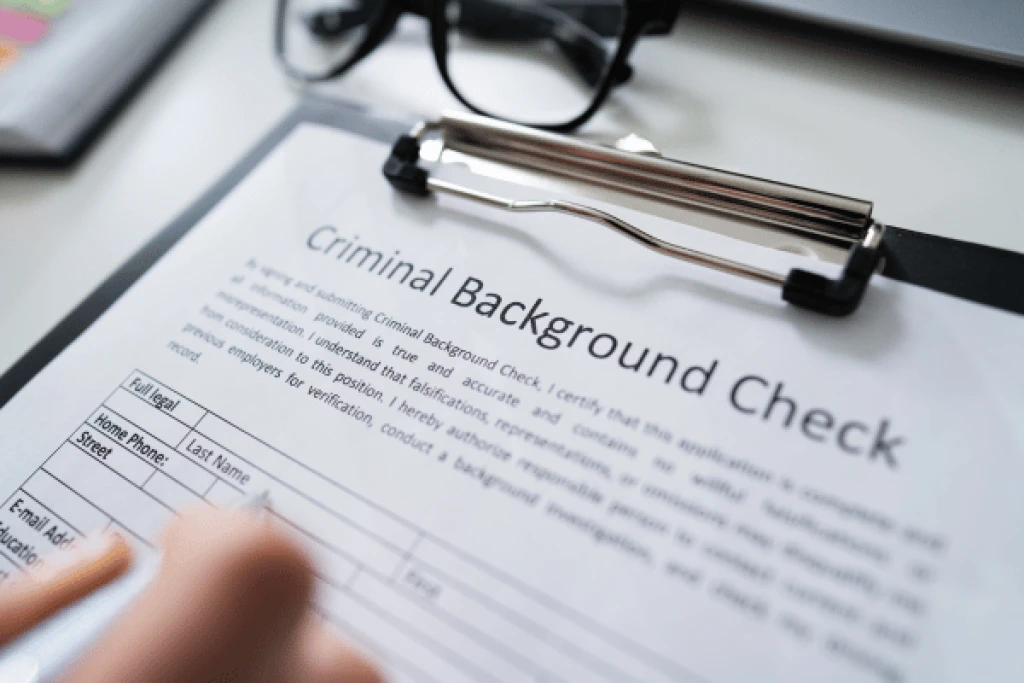The essential guide to HR for new businesses
HOME / / The essential guide to HR for new businesses
Hiring staff is a great way to boost your capacity and grow your business. Your employees will spend a lot of time at work, and hopefully devote their energy and enthusiasm to making your business a success, so make sure they’re safe, secure and well looked-after.
There’s a lot to consider - and a whole heap of paperwork - but there’s also lots of support and guidance available from the Government.

What are the legal requirements for hiring staff in the UK?
In the UK, there are several key requirements that you must meet before you can employ staff. These include registering as an employer with HMRC, running payroll, issuing an employment contract and meeting the national minimum wage.
Check out our comprehensive list below before hiring your first team member. If you're still just thinking about taking on staff, read our article on things to consider before hiring staff for your startup.
In this guide you'll learn about the need to:
Register as an employer
Set up payroll
Check your responsibility for workplace pensions
Get Employers’ Liability insurance
Understand the National Minimum / Living Wage
Register with the Information Commissioners Office
Provide legally required Health and Safety information
Draw up your employment contract
Check your employee’s right to work in the UK
Find out if they need a DBS check
1. Register as an employer
First things first, you need to register as an employer with HMRC. This means you can pay your employee - and the taxman - what they’re owed.

Register on the gov.uk/register-employer website
Do it no more than two months before you start paying someone, but before their first payday
You’ll receive your employer PAYE reference number within 20 working days
You must then tell HMRC whenever you take on a new staff member.
Register your employee online with HMRC using a Full Payment Submission
You’ll receive their payroll ID number so that you can pay them
2. Set up payroll
As an employer, you’re legally responsible for payroll and PAYE…but what does that mean?
PAYE means Pay As You Earn. It’s the UK government’s system to collect income tax directly from employers on behalf of their employees. PAYE is why – as a worker – you have tax taken out of your wages.
Payroll is the process that a business uses to pay their employees.

There are two ways to run payroll. You can do it yourself, with the help of some trusty payroll software, or you can pay a payroll provider to do it for you. Whichever you choose, you will need to collect and keep records of your employee details so that you can pay the relevant tax. If you don’t, you could face a hefty financial penalty.

You need to record:
What you pay your employees
Any deductions you make (tax, NI, pensions, student loans, charitable payroll giving, child maintenance)
Employee leave and sickness absence
Taxable expenses or benefits (such as a company car)
Any employee tax code changes during the year
If you decide to run payroll yourself, HMRC has a list of recommended payroll software. The good news for small businesses is that this is free if you have fewer than 10 employees.
3. Check your responsibility for workplace pensions
Most people dream of retiring and unlocking their pension pot to fund new-found leisure time. Taking up a hobby, maybe buying a caravan… And, as an employer, you get to make that dream come true. Happy days!
Every employer in the UK – no matter how small – must put eligible staff into a workplace pension. This is called ‘automatic enrolment’. As a new employer, your duties begin on the day your first employee starts work.
Eligible staff means anyone who:
is aged between 22 and state pension age
earns more than £10,000 per year
normally resides in the UK
If you have staff who meet these criteria, you’ll need to provide a pension scheme. You should pick a scheme that is regulated by the Financial Conduct Authority.
Find out more
If you don’t have staff who meet these criteria, you don’t need to provide a pension scheme but you still need to declare your compliance to the pension regulator. Failing to declare compliance can attract a financial penalty, so make sure you do.
You can find out more about automatic enrolment on The Pension Regulator’s website.
4. Get Employers’ Liability insurance
Accidents at work happen - much as we wish they didn’t – so it is important to be protected against any costs as a result of injury or illness caused by your business.
Employers’ Liability insurance helps you pay compensation if an employee gets injured when working for you.
We recommend Superscript, the small business insurance specialists. With their flexible, customisable cover, you can pick the covers you need and leave what your don’t. Tweak your policy at any time.

As soon as you become an employer, you must have EL that:
covers you for at least £5m
comes from an authorised insurer
You can face massive fines for not complying with this - £2,500 for every day you’re not insured – so don’t scrimp on this.
It is an employer essential, not a nice-to-have.
Get a quote5. Understand the National Minimum / Living Wage
Setting the salary you’re going to pay employees has legal, financial and moral considerations. What you choose to pay staff impacts on your ability to recruit employees, and their ability to live their lives whilst they work for you.
The government have a set minimum wage that all employees are entitled to. The actual amount depends on the age of the employee.
Young people from school leaving age to 24 are entitled to the National Minimum Wage
Adults over the age of 25 are entitled to the National Living Wage
The living wage is a little higher than the minimum wage and designed to meet all the essential needs that workers have. Apprentices and young people under school leaving age also have minimum pay requirements. These are lower as they don’t have the same living expenses as adults.

We’ve not included the rate here because it changes every April. You can find the most up-to-date rate on the gov.uk website. We can tell you that the fine for not paying minimum wage is up to £20,000 per employee though, and it’s a criminal offence.
Remember that these are minimum wages only. You’ll want to look at the market rate to attract the type of employee you want, and remember that good salary and employee benefits are a key way to recruit and retain the best staff.
6. Register with the Information Commissioners Office
The Information Commissioners Office are the data protection regulator. All the stuff you’ve heard over the last few years about GDPR? That’s these guys. They’re responsible for protecting our personal data, which is massively important when you think about the information we share with companies every day.

Any individual or organisation that processes personal data needs to pay a data protection fee to the ICO (some exemptions apply, like MPs!). As an employer, you’ll be recording sensitive personal identification information, such as name, address, date of birth and more.
The ICO have a handy self-assessment tool for sole traders that will help you determine your compliance with data protection law.
Take me to the Self Assessment Quiz7. Provide legally required Health and Safety information
Employers are required, by law, to display an approved HSE poster. Or provide their employees with the equivalent leaflet.
If you choose to display the poster, you need to display a copy in all of your business premises.
Alternatively, you can download the HSE leaflet for free at the Health and Safety Executive website.
You’ll need to adhere to Health & Safety Executive guidance on workplace safety. You’ll need to have a H&S policy, a risk assessment process, first aid on site, and appropriate welfare facilities.
You’ll also be responsible for fire safety at your premises: this means carrying out regular fire assessments, putting appropriate fire safety measures in place, providing staff with fire safety training and information.

These lists are illustrative but you should check www.gov.uk for the most up-to-date information on your legal responsibilities for staff safety, which vary massively depending on your industry.
8. Draw up your employment contract
It is important that everyone knows where they stand with employment. So it is wise to draw up an employment contract between you and your new employee.

This doesn’t have to be overly formal if that’s not your style. But it does need to include a written ‘statement of employment particulars’.
This includes all of the information about the business and the role. Things like business name and address, job title, employment duration, salary.
From 6 April 2020 there are additional items that need to be included so check the gov.uk website when you're drawing up your contract.
Find out the full list on the Written Statement of Employment Particulars page of the Gov.uk website.
9. Check your employee’s right to work in the UK
Before you employ someone, you must check they’re allowed to work in the UK. If you don’t – you guessed it – you can face a financial penalty.
Usually this means checking their passport and birth certificate. The gov.uk website has an online tool to guide you through the types of documentation they accept.
You’ll need to check the documents are genuine and take a copy for your records.
They may be checked by the government at a later date, so you need to be able to prove you followed the correct process.

10. Find out if they need a DBS check
Some employees need a DBS check. DBS is the Disclosure and Barring Service, which records whether people have criminal convictions that prevent them from doing certain types of work.
There are four levels of checks:
Basic
Standard
Enhanced
Enhanced with barred lists

DBS checks are designed to protect the public from exposure to people who may present a risk to them.
An enhanced check is required for certain types of job, such as working with children or in healthcare.
You can check which DBS check is right for your employee on the gov.uk website.
Are you a recruitment rookie or a rockstar?
Now that you have read through our essential HR guide, it's time to test your skills.
Sources:
Information correct at time of publication, August 2023


"We’re delighted to be the 2000th loan recipients!"
